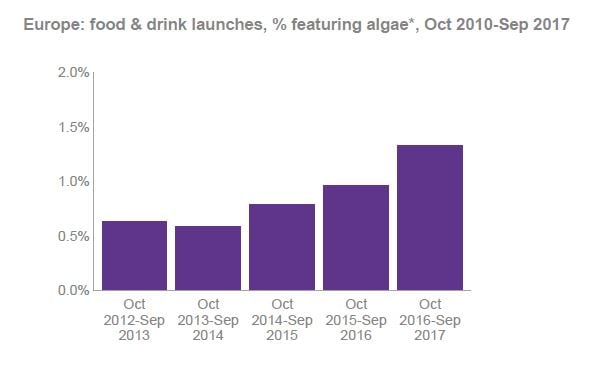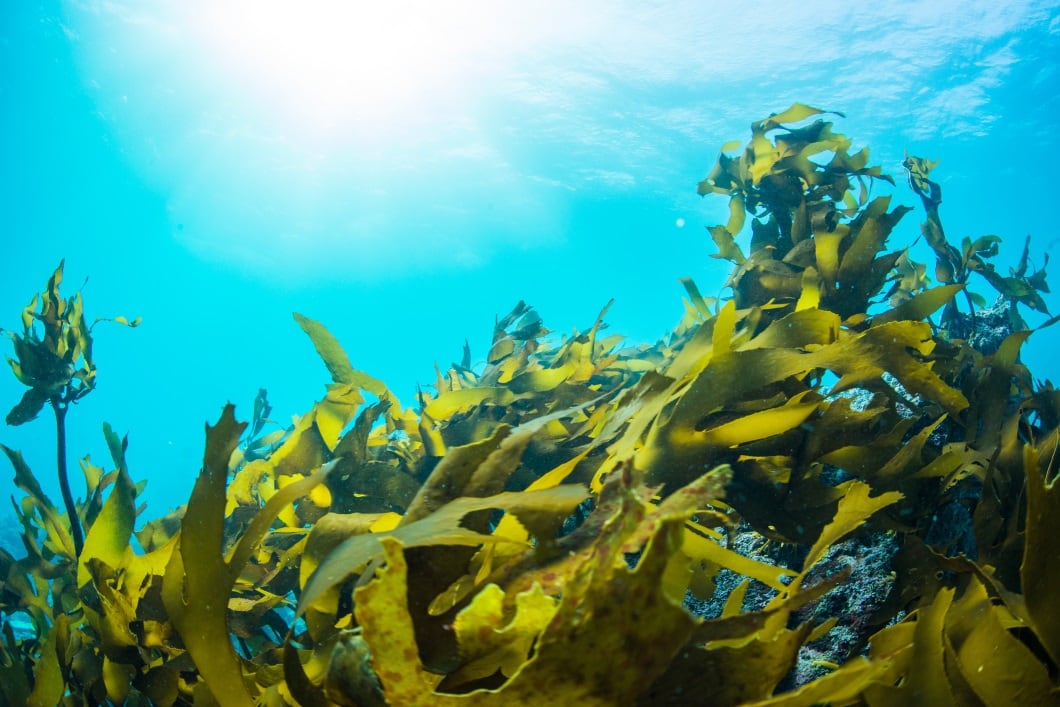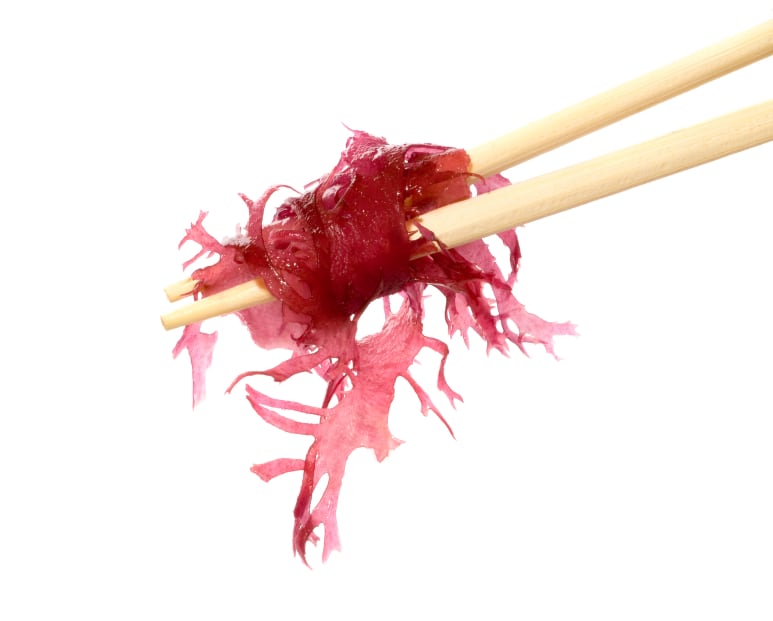The company works with local fishermen to harvest brown algae a few kilometers from its plant in Brittany. This approach enables it to ensure a constant fresh local and renewable supply of seaweed biomass.
Algaia is focused on producing specialised seaweed ingredients. According to the group, it is ‘committed to control its supply’ to ensure its customers receive sustainable, high-quality plant-based products.
Frederic Faure, business development director at Algaia, stressed that seaweed is uniquely placed as a sustainable ingredient source and rattles of a long list of the benefits.
“Brown seaweed is renewable, natural, does not require fertilizers, pesticide or anything external to grow. There are no GM issue of any kind, no water irrigation issue,” he told FoodNavigator.
Seaweed also compares favorably to conventional production of land-based crops, he continued. “Seaweed consumes five times more CO2 than a terrestrial plant when growing… [and requires] no terrestrial areas normally used to grow plant-based proteins,” he suggested.
For quality seaweed products Faure said it is important to note the way it is harvested in ‘most countries and in particular Chile and France’ is ‘very regulated’. On the consumer side, he continued, seaweed is Halal, Kosher and non-allergenic.
All of this adds to the ‘amazing potential’ of seaweed ingredients. “These are some of the reasons that make seaweed one of the most attractive sustainable sources,” Faure suggested.
Reformulating with seaweed
Algaia will be showcasing innovative concepts at trade show Food Ingredients Europe in Paris next month (3-5 December). Among these will be a new seaweed-based solution to replace the modified starch often used to give body to fermented dairy products such as sour cream or quark.
According to Algaia the use of modified starches in formulations can ‘damage their clean label positioning’ as the starch is chemically modified and can be GMO-derived. It also represents an issue for consumers who are gluten intolerant.
Algaia’s new ingredient innovation, which was submitted for the FiE ‘reformulation innovation award’, can be incorporated in fermented dairy products to maintain the same viscosity throughout shelf life as when starch is used. The company claims it provides an ‘excellent cooking stability’, no off-taste and a shiny appearance.
The alginate solution can be at a lower dosage than starch (0.2% vs 0.75%). This also allows for a lower cost-in-use, the company claimed.
Data from Mintel shows product launches containing seaweed and algae have doubled between 2015 and 2017, accounting for 1.4% of total new products launched in Europe.

Faure said that the ingredient allows manufacturers to reformulate while still delivering on the most important aspect – taste.
"In food, the first need will remain the taste of the product. The consumer experience. If products do not meet the organoleptic promises that consumer are looking for, products will simply not be successful. However, if rich, creamy, indulgent tastes are also obtained with reduced fat and/or sugar, the product will then become most popular. If on top of that, the texture can be obtained with clean label solutions, product will then tick all the boxes,” he suggested.
Algaia’s seaweed solutions can also be used to produce better for you snacks and the company hopes to demonstrate this through ‘wellbeing pastries’ that will be rustled up by 2014 World Champion Pastry Chef Johanna Le Pape.
Reduced fat desserts, clear label custards as well as low sugar fruit preparations will all be on display.
Algaia will also present an all-in-one alginate-based concept for vegan meat alternatives. This new ingredient aims to provide vegan meat analogues with a ‘juicy inner texture’ and a ‘crispy protective casing’.
In addition to enabling a healthier nutritional profile thanks to fat-reduced formulations, alginates have recently been recognized by the FDA as a source of fibre, Algaia noted.
An ‘unexpected best solution’ to the plastics problem?
Faure revealed that Algaia has also turned its attention to developing solutions to the plastic issue through seaweed.
"There is clearly a growing trend for plastic alternatives and seaweed-based products might become the unexpected best solutions that prevail from plant based plastic," he suggested.
Seaweed is a good option in this respect because it is not competing for land and water resources that are needed to fuel the food chain. "Seaweed grows in places that are not used to produce plant needed for their protein content either to nourish humans or animals. There is therefore no competition between several use of the same plant like can happen with corn, maize."
Algaia already allows food makers to encapsulate sauces, dressings and condiments. Beads of essential oils or health actives can also be incorporated into food matrices to create an ‘unexpected mouthfeel’ and controlled release. And, ultimately, the company believes its alginates can also be used to ‘replace plastic cups and bottles’.
Notpla, European plastic-free tech company, will join the Algaia stand to show various applications of these new sustainable packaging solutions.
"Algaia has already developed several formulations to address these type of topics and will have more to come in the future with strong protected intellectual property,” Faure concluded.




